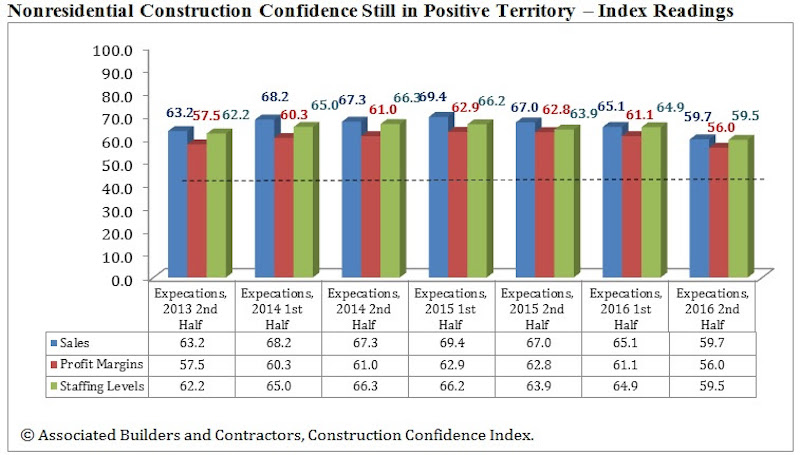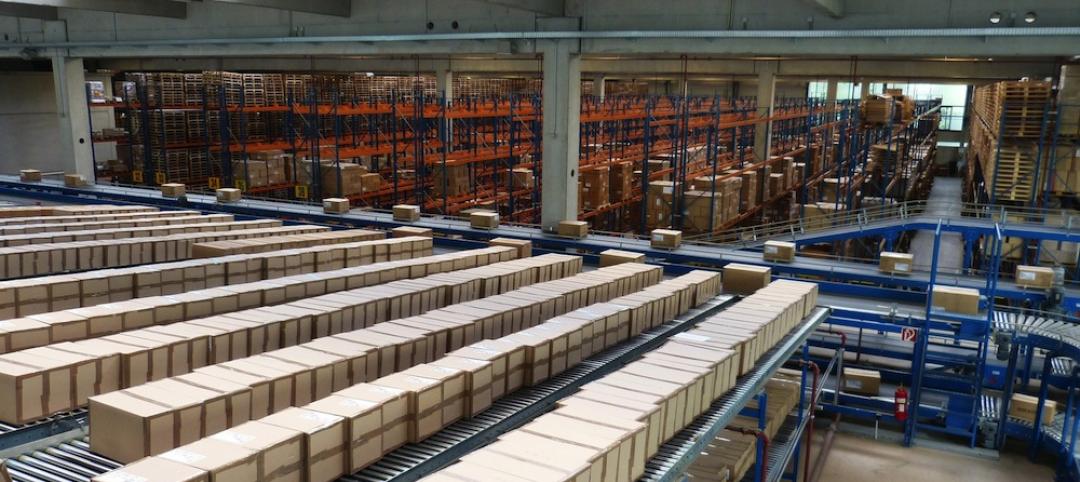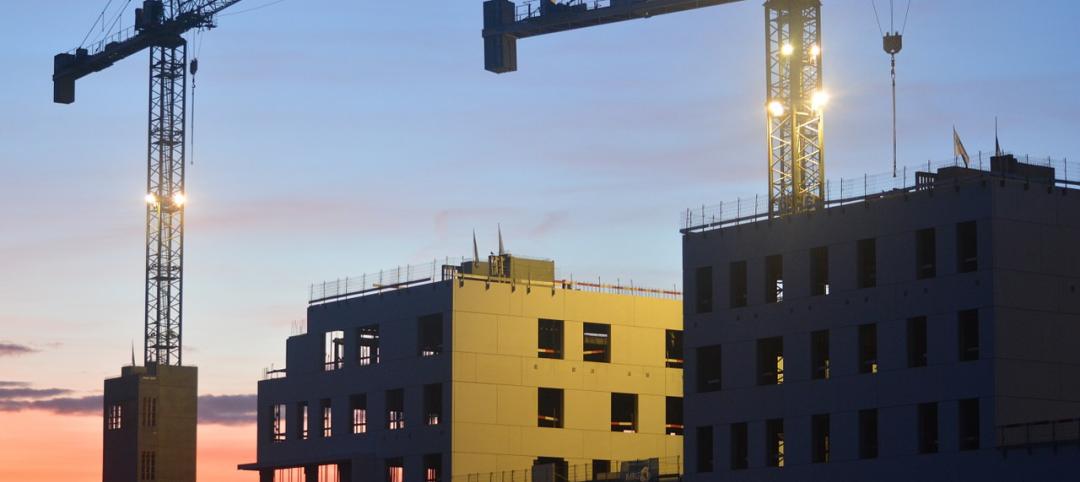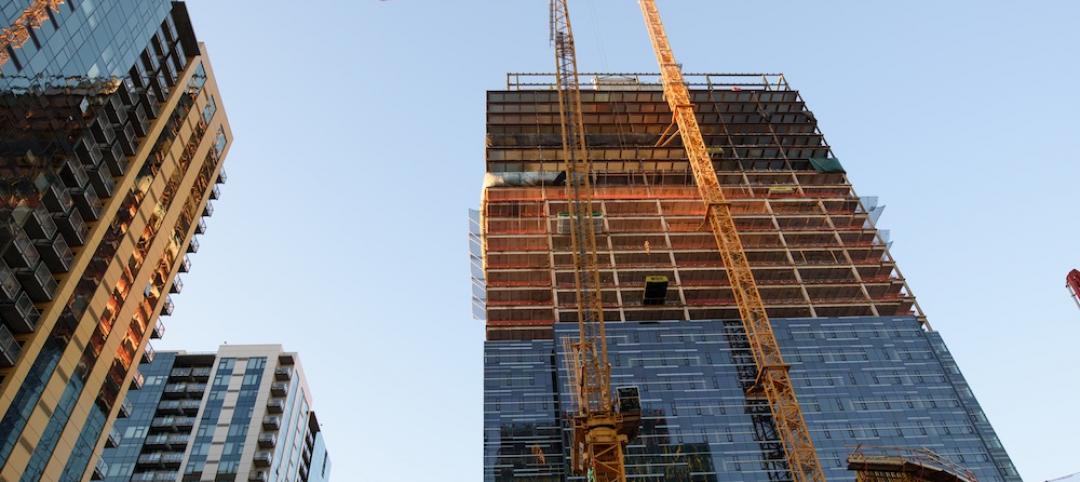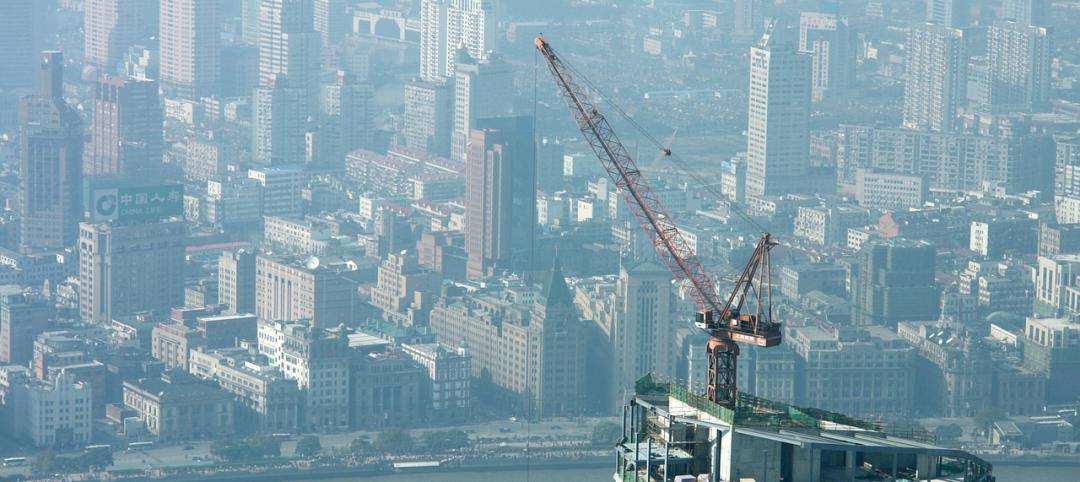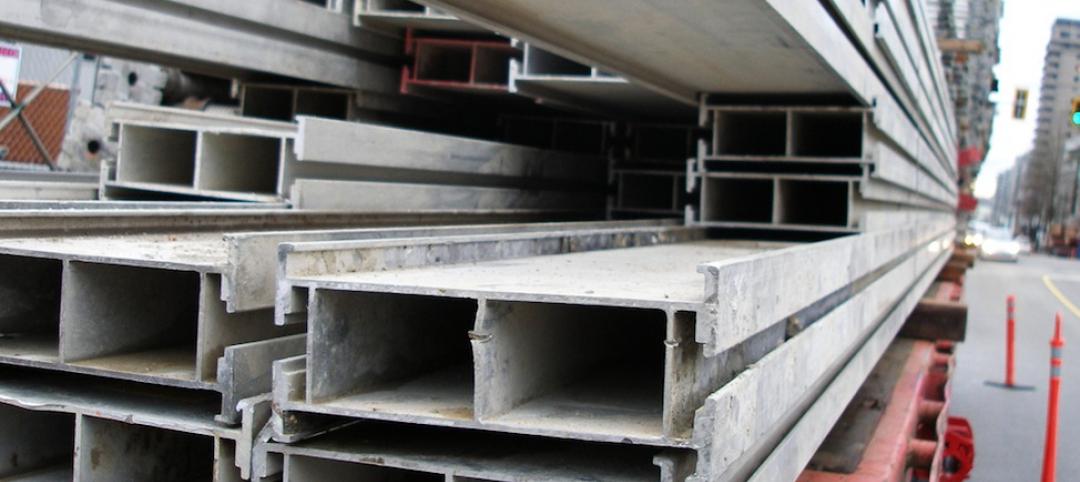Expectations for 2017 have become less optimistic, but the majority of industrial and commercial construction contractors still expect growth this year, according to the latest Associated Builders and Contractors (ABC) Construction Confidence Index (CCI). Although all three diffusion indices in the survey — profit margins, sales and staffing levels—fell by more than five points, they remain well above the threshold of 50, which signals that construction activity will continue to be one of the few significant drivers of economic growth.
The latest survey revealed that:
- The CCI for sales expectations fell from 65.1 to 59.7;
- The CCI for profit margin expectations fell from 61.1 to 56;
- The CCI for staffing levels fell from 64.9 to 59.5.
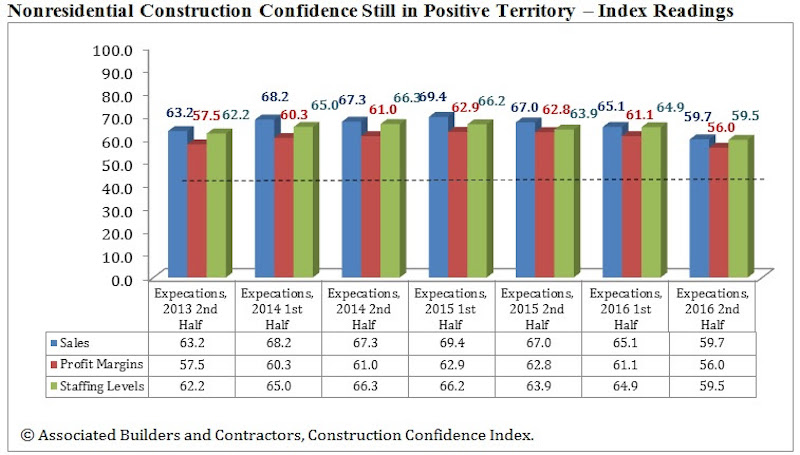
“There may be a period during which the pro-business agenda being forwarded in Washington, D.C., will significantly impact construction firm expectations,” says ABC Chief Economist Anirban Basu in a release. “In fact, many construction executives have become more confident, including those who would stand to benefit most directly from an infrastructure package. However, there is a realization among construction firms that, if implemented, many of these pro-business initiatives would begin impacting the economy beyond the six-month timeframe built into ABC’s construction confidence survey.
“Despite an ongoing dearth of public construction spending growth, certain construction segments have experienced significant expansion over time, including office, hotel, healthcare and multifamily segments,” says Basu. “This helps explain why more than 60% of respondents expect their sales to rise during early 2017 and the same number expect staffing levels to rise.
“Respondents from Florida and other rapidly growing states are reporting significant shortages of appropriately skilled workers, which is helping to drive compensation costs higher,” says Basu. “This helps explain why fewer than half (48%) of respondents now expect profit margins to climb. That is down from 54% from the previous CCI, supporting the proposition that the construction skills shortfall has worsened over the past six months.
“For now, confidence appears to be supported less by policymaking than by the ongoing momentum of the U.S. construction industry,” says Basu. “Going forward, confidence is likely to depend more intensely on the new administration’s capacity to move its pro-business agenda from theory to practice.”
The following chart reflects the distribution of responses to ABC’s most recent surveys.

Related Stories
Market Data | Feb 10, 2016
Nonresidential building starts and spending should see solid gains in 2016: Gilbane report
But finding skilled workers continues to be a problem and could inflate a project's costs.
Market Data | Feb 9, 2016
Cushman & Wakefield is bullish on U.S. economy and its property markets
Sees positive signs for construction and investment growth in warehouses, offices, and retail
Market Data | Feb 5, 2016
CMD/Oxford forecast: Nonresidential building growth will recover modestly in 2016
Increased government spending on infrastructure projects should help.
Market Data | Feb 4, 2016
Mortenson: Nonresidential construction costs expected to increase in six major metros
The Construction Cost Index, from Mortenson Construction, indicated rises between 3 and 4% on average.
Contractors | Feb 1, 2016
ABC: Tepid GDP growth a sign construction spending may sputter
Though the economy did not have a strong ending to 2015, the data does not suggest that nonresidential construction spending is set to decline.
Data Centers | Jan 28, 2016
Top 10 markets for data center construction
JLL’s latest outlook foresees a maturation in certain metros.
Market Data | Jan 20, 2016
Nonresidential building starts sag in 2015
CDM Research finds only a few positive signs among the leading sectors.
Market Data | Jan 20, 2016
Architecture Billings Index ends year on positive note
While volatility persists, architecture firms reported healthy performance for 2015.
Market Data | Jan 15, 2016
ABC: Construction material prices continue free fall in December
In December, construction material prices fell for the sixth consecutive month. Prices have declined 7.2% since peaking in August 2014.
Market Data | Jan 13, 2016
Morgan Stanley bucks gloom and doom, thinks U.S. economy has legs through 2020
Strong job growth and dwindling consumer debt give rise to hope.


